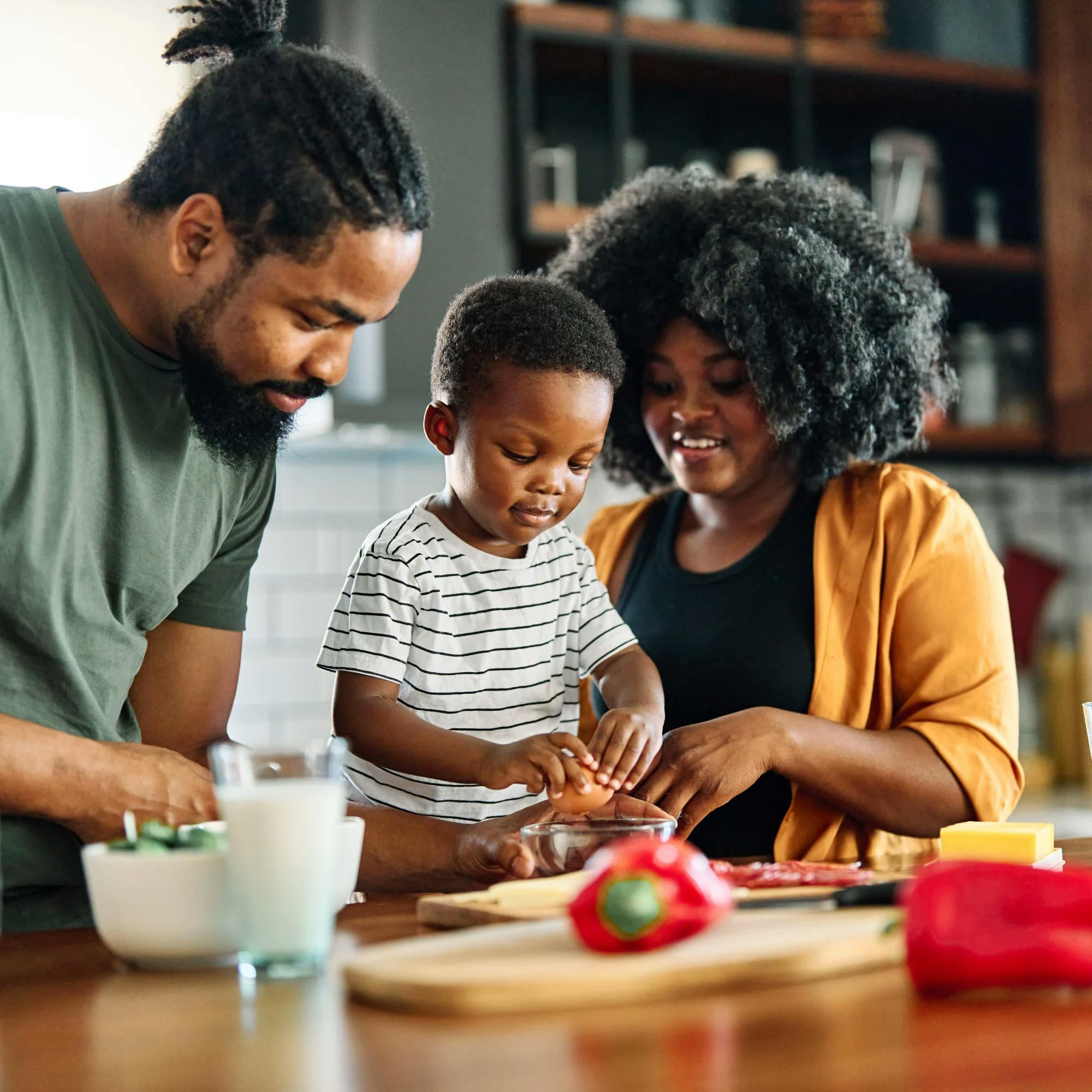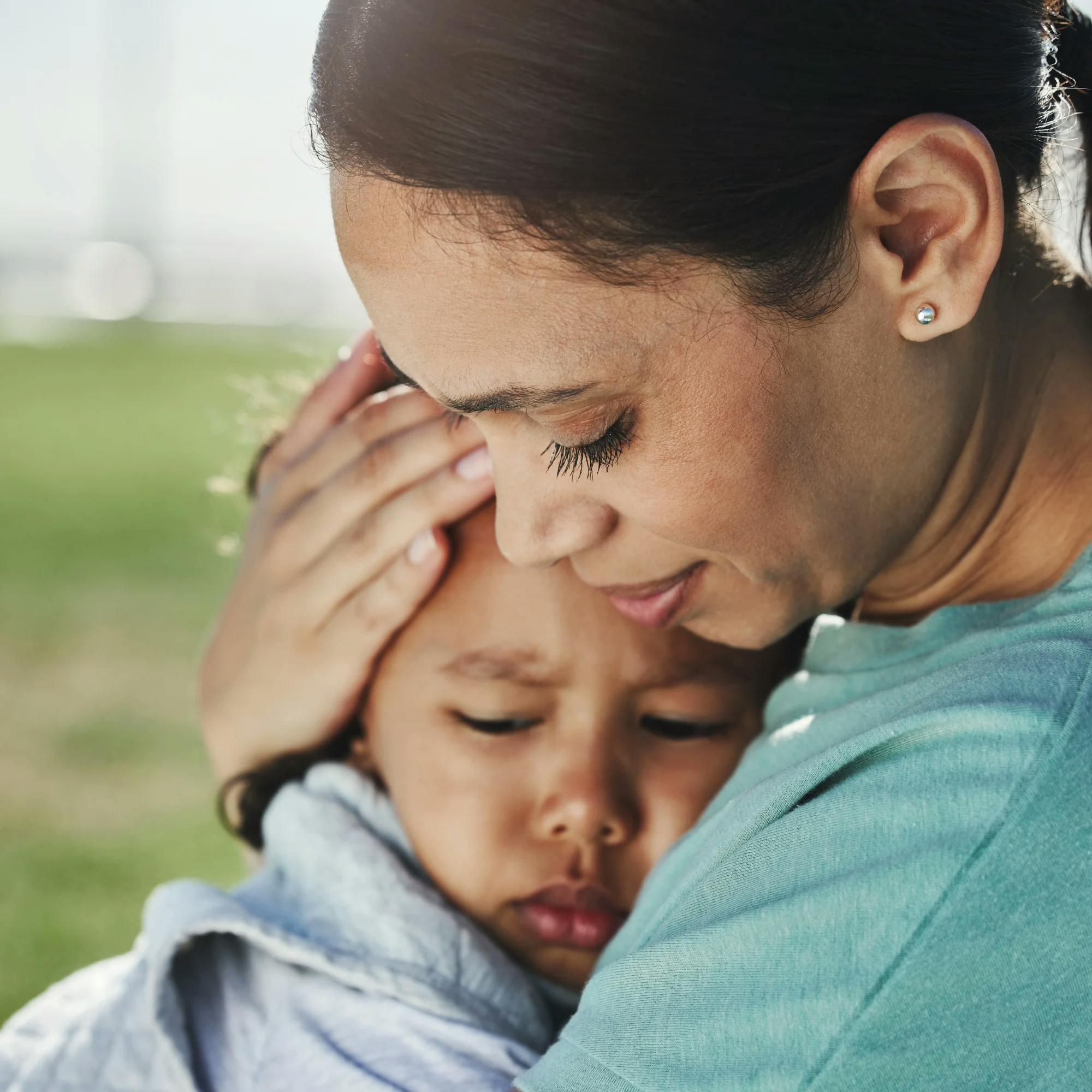
Keeping Children Happy and Stress-Free This Holiday Season
 Alexis Irazoque, M.S., CCC-SLP
Alexis Irazoque, M.S., CCC-SLP
The holidays aren’t always how they appear in movies or TV.
Of course, there’s the typical stress for adults--prepping for family gatherings, buying and wrapping presents, attending school events, decorating, baking, dealing with the in-laws...
And then there are our kiddos. While it’s easy to romanticize this time of year for little ones, the holidays can be stressful for them, too.
For kids, changes in routine can lead to stress
Many children are used to steady routines, and those can get disrupted during the holidays. School or daycare is closed, bedtimes go out the window, typical meals are swapped for different foods. Plus, many kids can be sensitive to the stress that occurs between family members. There’s a ton of new faces and pinched cheeks, loud noises and long trips.
All of this can be unsettling for children, which can lead to big emotions and tough behaviors. This can be true for all kids, but if your child isn't yet talking or has delays in speech and language, expressing how they feel can be especially tough.


7 tips for smoother holidays with children
While we’ll never be able to remove all the seasonal stressors, there are some simple ways to make the holidays run more smoothly for your children. These small but purposeful steps can lead to fewer meltdowns and more quality bonding time.
1 Be kind to yourself
Kids notice what goes on around them. Just as they learn language by absorbing it from their families, they also pick up on their caregivers' emotions. Kids can sense stress and anxiety and, in turn, they might act out.
So while you might feel pressure to create that “picture perfect” holiday, remember to take care of yourself! Prioritize what's important and take the time for self-care, whatever that entails. Maybe it means taking a nap, or cutting back on scheduled activities. Do you have to bake eight dozen cookies or mail out holiday cards this year? A calm parent helps lead to a calm child.
2 Maintain a routine
Children are creatures of habit. So when everything changes, even if only for a few days, our kiddos can have difficulty adjusting.
This is especially true when relatives are visiting, or when you’re traveling to another home or city. New people and places can be overwhelming. So, keeping some semblance of your child’s daily routine can help reduce stress.
Here are a few tips:
Try to stick to your child’s normal bedtime routine and keep the same bedtime hour. A well-rested child will do better navigating new experiences.
If you’re traveling, pack a few of your child’s favorite toys, snacks, or books. These cherished items from home can make a new environment easier to manage.
Depending on your child's age, make a calendar that shows what you'll be doing and when. Look at the calendar with your child often. On which days is school closed, and when is your child going to day camp? When is Grandma coming to stay? Your child will feel less anxious when they know what to expect.


3 Be mindful of what they’re eating
Who doesn't indulge a bit during the holidays? While it’s a time to treat ourselves, it’s important to watch what your kiddos consume. All those sweets can get out of hand quickly!
At the same time, if you’re traveling or away from home, you may not always have access to the types of food your child prefers. Many kids are picky eaters; they struggle to try new foods and have a limited number of foods they like. It’s tempting to give in and let your toddler eat nothing but fast food and sugary desserts.
Remember, it can take nearly 20 tries for a child to accept a new food. Offer small portions of new foods. Take the time to describe the food, demonstrate eating it yourself, and allow your child to explore. The holidays can be a perfect time for children to observe their family eating new foods they might normally refuse. When you provide a positive model, your little one may become a bit braver about their food choices!


4 Keep kids active
As adults, many of us crave relaxation. But for children, the downtime that comes during the holidays can lead to frustration and boredom. Kids need time to play and expend energy.
Build time into their holiday break to run around outside. Maybe this means going on a hike, trying ice-skating, or taking a walk to see the decorated homes in your neighborhood. You can use this as a language learning opportunity by asking your child to describe what they see: “Wow, that tree is lit up with red lights! Do you see it?” As a bonus, physical activity helps lower stress and can even make bedtimes easier (fingers crossed!).
5 Find a designated quiet spot
Just as adults need some quiet time to keep from being overwhelmed, so do our little ones.
Gathering with extended family and friends can be sensory overload for many children. Unfamiliar faces, places, and sounds can often lead to a tantrum.
The holidays can be sensory overload. Choose a place in your home where your child can have some downtime.
Before all this hustle and bustle begins, choose a place in your home where your child can get away and have some downtime. Even if you’re visiting family, finding a corner where they can sit with a few of their favorite toys may help them recharge. While this is a simple trick, it can often decrease those frustrated tantrums when things get too loud or crowded.
6 Make lasting memories together
In the rush to make things perfect, we often forget to take time to actually enjoy the holidays. While your schedule might be packed, try to block off some time to experience things with your child.
You might watch a favorite holiday special on TV, take a snowy walk with some hot chocolate, or bake a cake or cookies together. As a bonus, an activity like baking is an opportunity to work on language skills, such as following directions. Getting your child involved in the preparation also helps grow their vocabulary, with words like “mix,” “pour,” or "stir."
These holiday rituals can become part of your child's annual routine, giving them something to look forward to each year.


7 Involve your child in giving back
It's never too early to get kids involved in helping others. Maybe it’s helping to shovel the snow from a neighbor’s driveway, or bringing an elderly neighbor some of the cookies that you baked together. Acts of generosity, especially during the holidays, can help a small child begin to understand the importance of sharing.
The holiday season means something different to everyone. If you have a child, it’s a chance to create a positive experience that they'll look forward to every year. Maintaining a routine, including your child in some holiday preparation, and taking time to enjoy each other’s company and relax can help your child feel the joy of the season.
How Expressable Can Help
Concerned your child isn't reaching age-expected milestones? Looking for communication support from a professional? Expressable is a national online speech therapy practice serving children and adults. We treat all major areas of communication and feeding, offer flexible hours including evenings and weekends, and accept most major health insurance plans. We’re proud to have earned more than 3,000 5-star reviews from our clients (4.9/5 average).
Our therapy model is centered on parent and caregiver involvement. Research proves that empowering caregivers to participate in their loved one’s therapy leads to better outcomes. That’s why we combine live, 1-on-1 speech therapy with personalized education and home practice activities for faster progress.
Communication is more than words. It’s how we share how we feel and show who we are. We’re here to help you or your child do just that.











